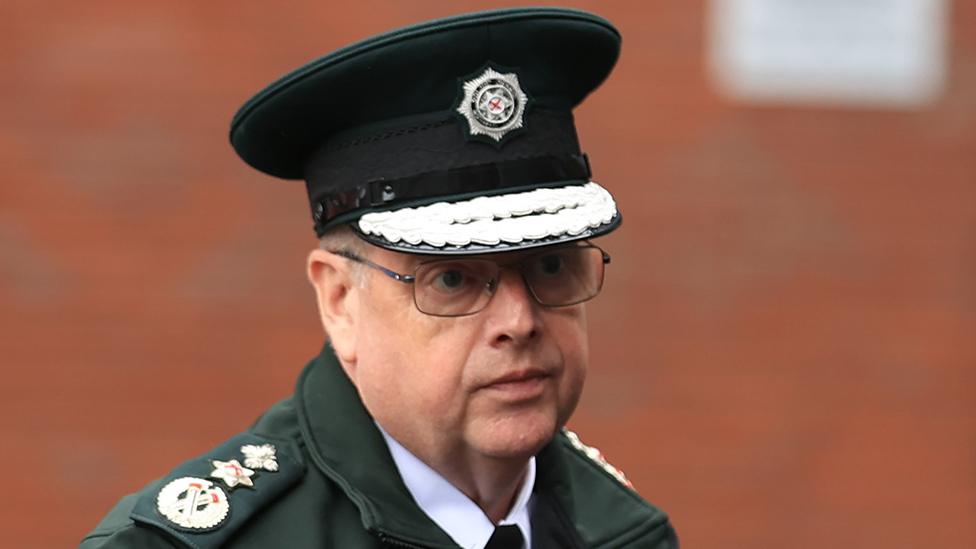PSNI crisis: Officers craving strong leadership, says UUP leader
- Published
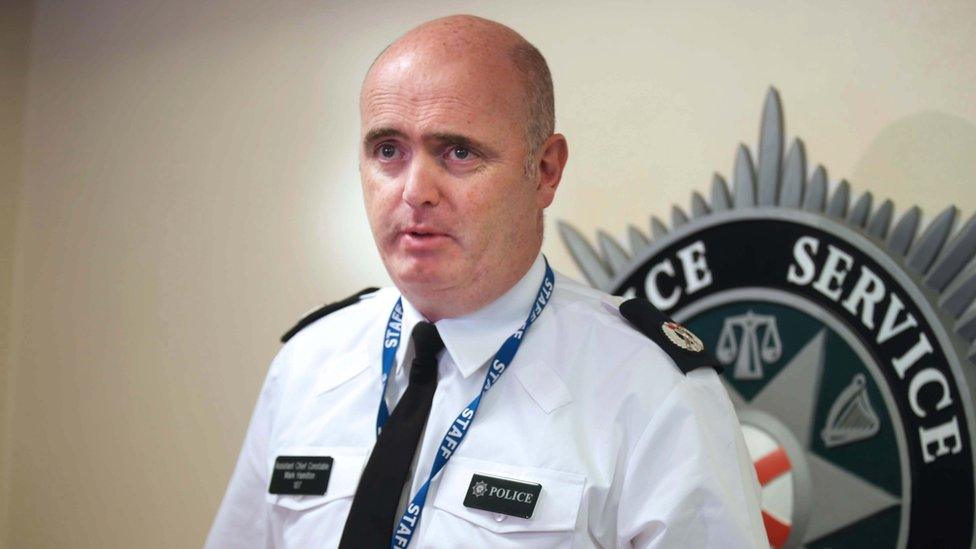
Deputy Chief Constable Mark Hamilton is in command of the PSNI until a new chief constable is in post
The Police Service of Northern Ireland (PSNI) is craving strong leadership and "it is hard to see where that is at this moment in time", Ulster Unionist leader Doug Beattie has said.
Mr Beattie said the PSNI has "fantastic officers" but "real problems" needed to be addressed.
He said the NI Policing Board had to to be more decisive.
The board has rejected criticism it is not doing enough to resolve the current crisis in the PSNI.
"I think we have real problems here and it is a place for the Policing Board to be more decisive in regards to this, to stop, to think, to formulate plans, come up with courses of action and decide which is the best course of action to choose," Mr Beattie told BBC Radio Ulster's Good Morning Ulster.
"We have fantastic police officers in the higher echelons on the PSNI, but right now what they crave is strong leadership and it is hard to see where that is at this moment in time.
"Regardless of who is trying to steer the ship, it needs that strong leadership."
'Leadership is invisible'
Former PSNI Assistant Chief Constable Stephen White said on Friday it was "unsatisfactory" and "unprecedented" to have no single individual "leading and setting the priorities and standards".
"Now is the time for one of those ACCs (assistant chief constables), or perhaps all four, to step up and say 'here's what I believe in, here's what I am going to provide, here's the leadership that I will deliver'.
"Leadership is invisible and that cannot continue, someone or all of those guys need to step up and say 'this is the way forward, this is what I am going to do'.
"It is like a football situation, you need a manager, you can have lots of coaches, lots of people responsible for goalkeeping or defence or attack, but you need a manager, a figurehead and that's what I think the police is crying out for at the moment."
The comments came after 16 police officers were injured by young children during disorder in Londonderry.
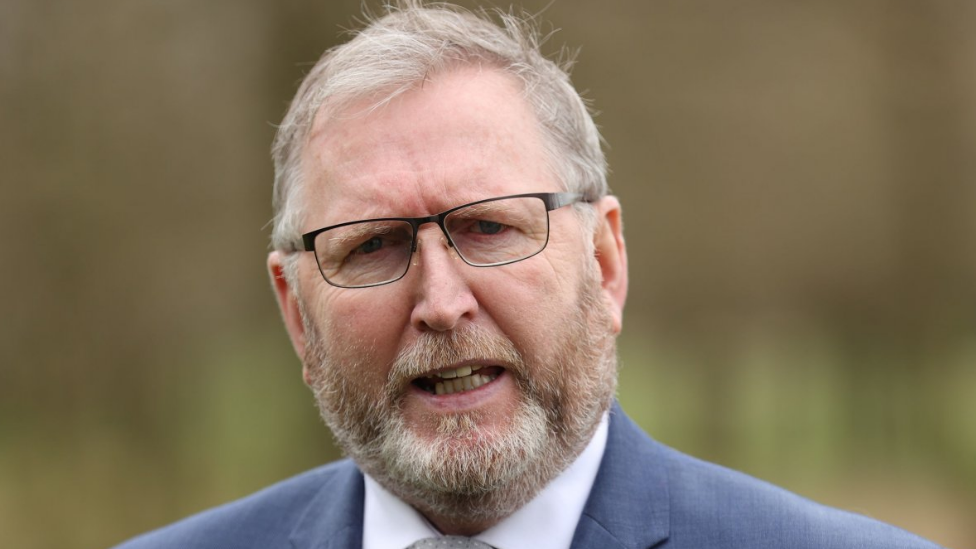
Ulster Unionist leader Doug Beattie said the Northern Ireland Policing Board needed to be more decisive
Northern Ireland Policing Board chairperson Deirdre Toner has said that the board is "working around the clock" after a series of controversies.
The board met for more than eight hours on Thursday.
On Wednesday, the Police Federation passed a vote of no confidence in PSNI Deputy Chief Constable Mark Hamilton.
The organisation, which represents rank-and-file officers, also passed no-confidence votes in two other senior PSNI officers - Chief Operating Officer Pamela McCreedy and Assistant Chief Officer Clare Duffield - and criticised the board for its handling of recent events.
Mr Hamilton was placed in command of the PSNI by the board after Simon Byrne resigned as chief constable on Monday.
Ms Toner said due to an unplanned medical procedure, Mr Hamilton had delegated authority to a team of assistant chief constables.
She also said the Department of Justice had agreed to carry out a review of the Policing Board, which oversees the PSNI and holds its leadership to account.
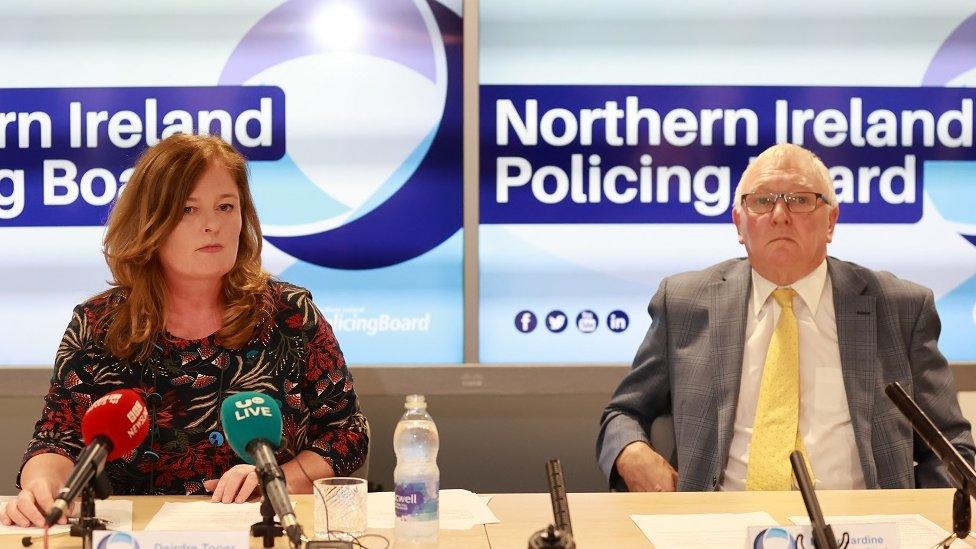
Policing Board chair Deirdre Toner and vice-chair Edgar Jardine at a press conference following a meeting in Belfast of the board on Thursday
Outlining the recruitment process to find the next chief constable, Ms Toner said the process will open at the end of September and she hoped it would be completed by early November.
In a statement the board said its priority over the last few days has been to "bring stability and confidence" during an "unprecedented time for policing".
Vice-chair of the board Edgar Jardine said commentary on the Police Federation's no-confidence vote was unhelpful.
ICO audit
Meanwhile, DUP MLA Trevor Clarke, who sits on the Policing Board, raised concerns around the findings of an audit by the Information Commissioner's Office (ICO), external into the PSNI's processing of personal data.
The ICO audit was published last month and set out almost 50 "urgent" or "high priority" recommendations.
"The ICO found that roles in the PSNI in relation to data sharing were not clear and guidance did not contain details of those with the authority to sign off on risks," Mr Clarke said.
"Whether it be officers, staff, victims, offenders or the wider public, the PSNI needs to ensure all personal data is handled properly and lawfully."
He said that fieldwork for the audit started in March, raising further questions for the senior ranks within the PSNI.
Mr Clarke asked if the was PSNI aware of concerns about its data practices before last month's breach.
"When did they receive the ICO recommendations?" he said.

Why are PSNI leaders under pressure?
Mr Byrne left his role as chief constable after two major controversies hit the PSNI in succession.
Firstly, in August, a number of data breaches came to light, including one where the names and details of the PSNI's 10,000 officers and civilian staff were published in error as part of a Freedom of Information request.
Mr Byrne later said the information was in the hands of dissident republicans who could use the list to generate "fear and uncertainty".
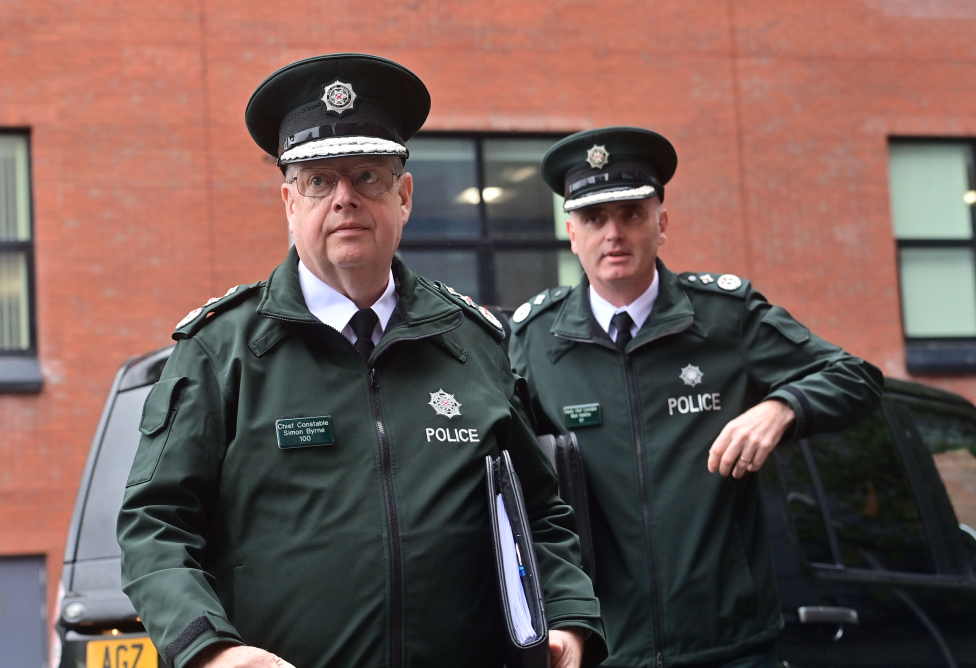
Simon Byrne (left) stepped down as chief constable after two major controversies hit the PSNI in succession
Then, last Tuesday, a court ruled two junior officers were unlawfully disciplined following an arrest at a Troubles commemoration in February 2021.
The event was marking the anniversary of the 1992 Sean Graham bookmakers attack where five people were murdered by loyalist paramilitaries.
The judge said the officers were disciplined to allay any threat of Sinn Féin abandoning its support for policing in Northern Ireland. Sinn Féin has denied this.
On Wednesday, Democratic Unionist Party (DUP) leader Sir Jeffrey Donaldson called for someone to be brought in externally to lead the PSNI in an interim role until a new chief constable is appointed.

Earlier on Friday, BBC Radio Ulster's The Nolan Show reported that the Police Ombudsman for Northern Ireland's (PONI) office was retaining significant amounts of highly sensitive personal information on its employees - without the knowledge of the ombudsman herself.
Staff working at the police regulator submitted sensitive personal information to the government's in-house security vetting organisation - UKSV - when applying for jobs.
However, unbeknown to the ombudsman herself, and apparently to staff, a memorandum of understanding was drawn up between the office of the Police Ombudsman and UKSV.
That memorandum meant that sensitive information was not only held by the vetting service - but also in paper records in a locked cabinet on the Police Ombudsman's premises.
The Nolan Show said it understands hundreds of staff at the organisation are affected.
PONI says a new policy is in place which means that when a decision is taken on staff vetting, information is securely destroyed.
It said information is "stored securely within our office premises and access to that information is restricted to three designated members of staff".
"Annual security forms for those subject to developed vetting (DV) are retained until superseded by the next form or until a year after a staff member leaves employment," it added, and "no vetting information has been disseminated inappropriately either internally or externally".
Related topics
- Published7 September 2023
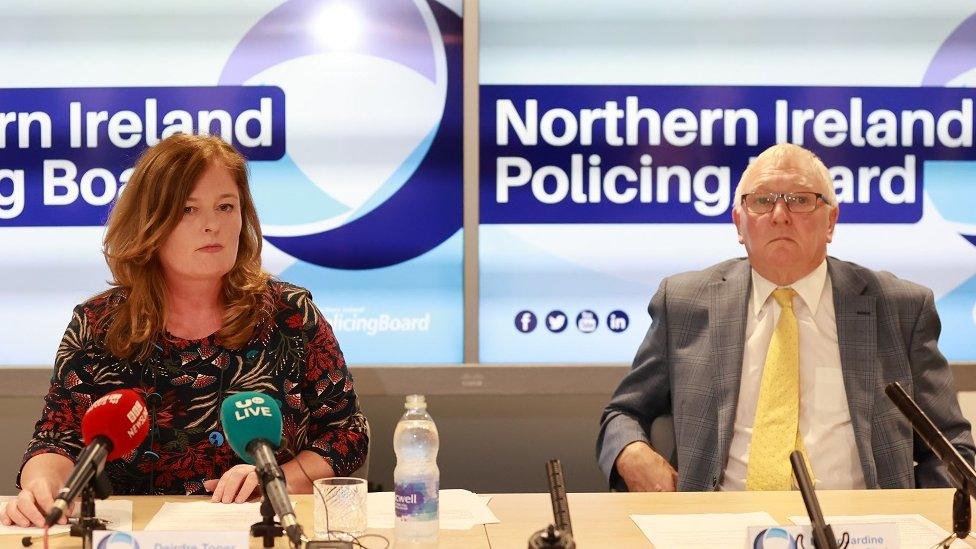
- Published6 September 2023

- Published5 September 2023
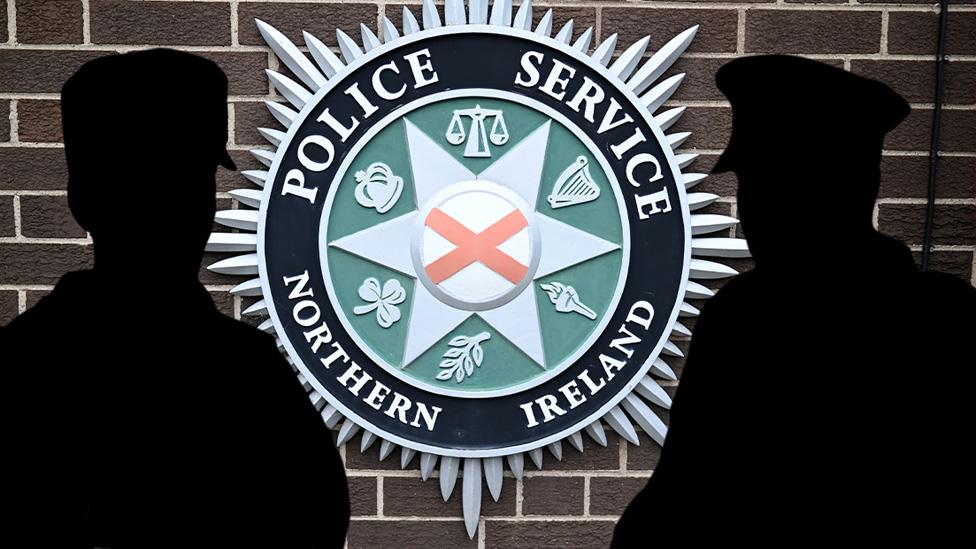
- Published5 September 2023

- Published4 September 2023
